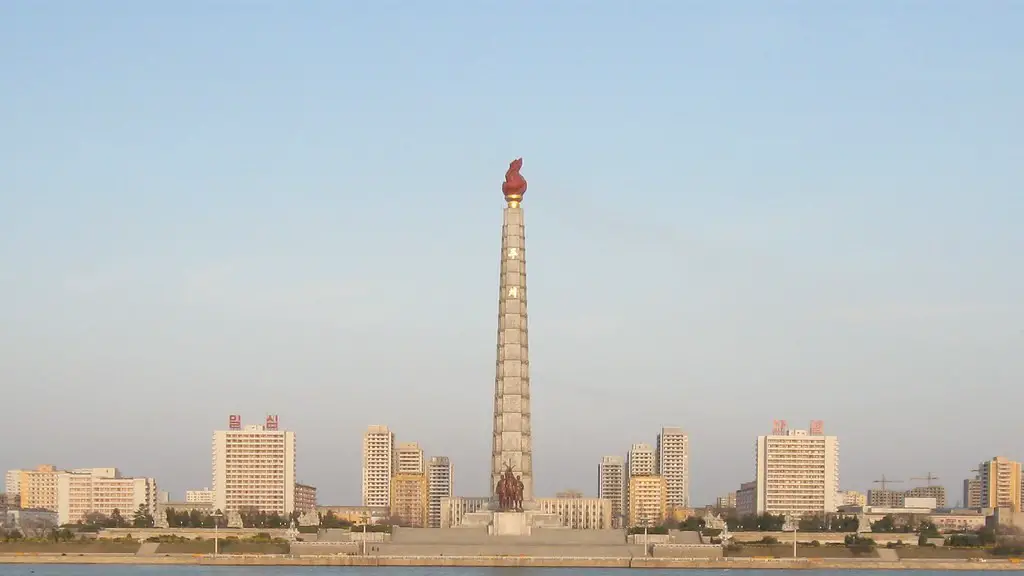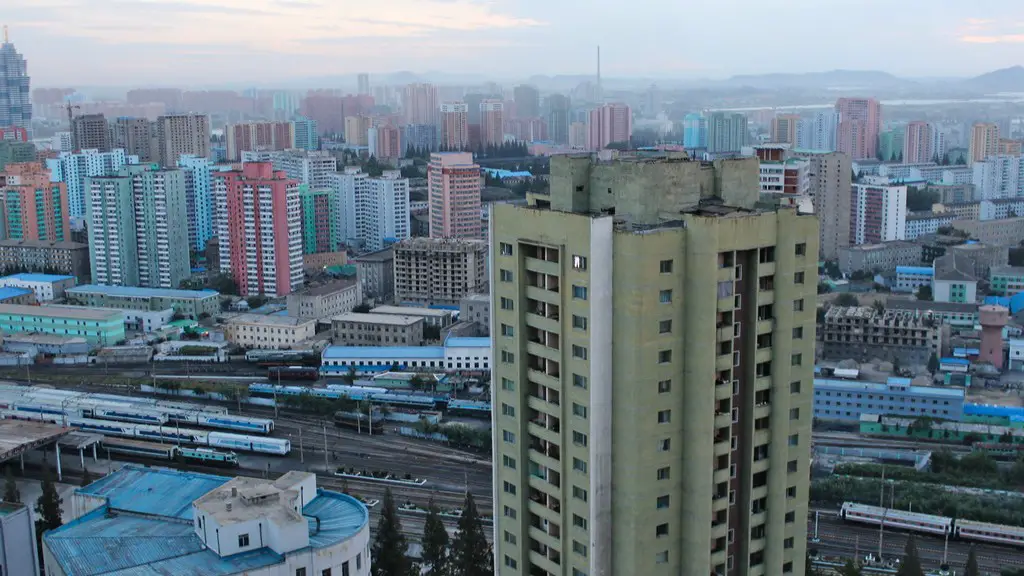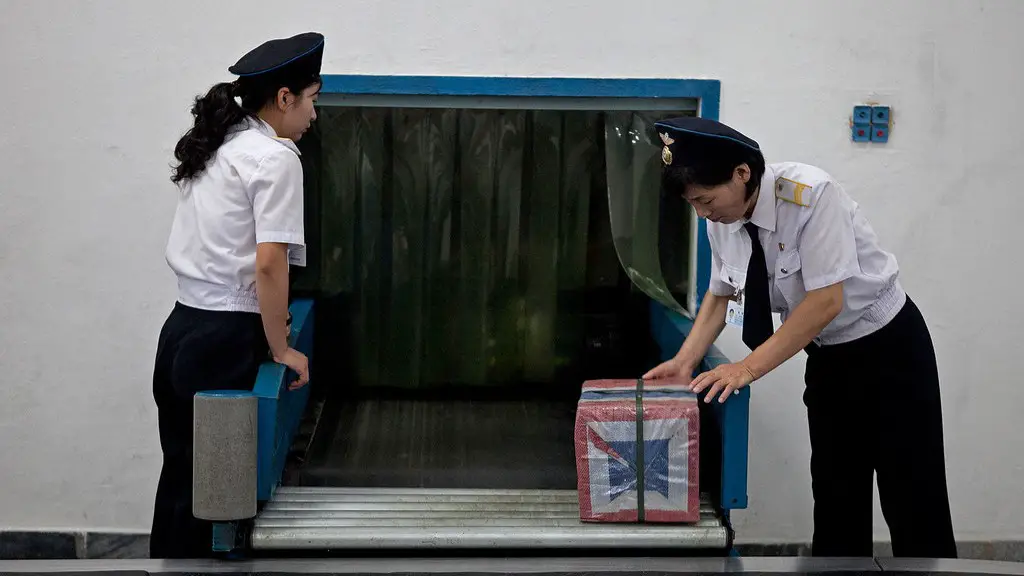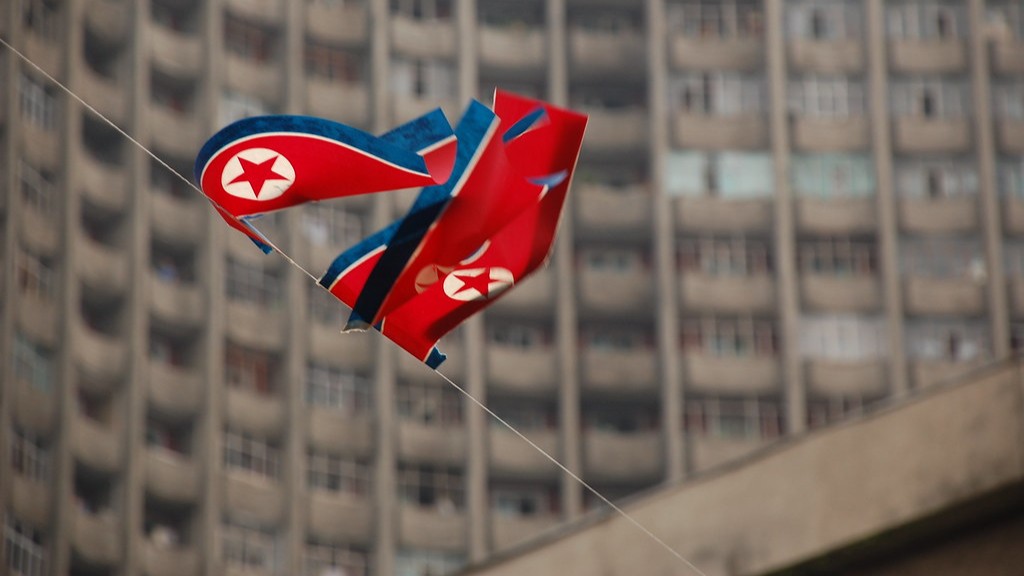Is Hawaii safe from North Korea?
With the recent heightening of tensions between North Korea and the United States, one of the main areas of concern for many in the U.S. Pacific region is the security of Hawaii. So, is Hawaii safe from North Korea?
The risks posed by North Korea to Hawaii, as well as other areas of the Pacific, have been touched upon extensively by different news outlets and experts over the past few months. Some experts remain wary of North Korea’s behavior, citing its recent advancements in both missile and nuclear weapons technology, as well as its tested ability to launch missiles over long distances. These advancements despite United Nations-imposed sanctions on the country’s weapons development.
Others, however, point to recent facts and figures that could prove that Hawaii, in particular, is relatively safe from North Korean aggression. Data released by the U.S. Missile Defense Agency has demonstrated that Hawaii is equipped with a sophisticated ballistic missile defense system, which, when used in conjunction with the intelligence sources of the U.S military, could substantially reduce the risk posed by North Korean missiles.
Whilst these facts and statistics should provide some comfort to the people of Hawaii, one can never be 100% certain that the islands won’t be North Korea’s target. As such, the government of Hawaii is trying to stay prepared for, and proactive about, any potential threats from North Korea.
The Hawaii Emergency Management Agency has been hosting regular meetings and briefings, where representatives from different organizations and private citizens can come together to discuss safety concerns and the issues surrounding a possible attack. Various emergency response protocols have also been put in place not just in the big cities, but in other regions as well to ensure that Hawaii is as safe as possible.
In addition to this, emergency services such as the Hawaii Police Department and Hawaii Department of Defense are training and equipping their personnel with the necessary resources needed to respond swiftly and effectively to any threats posed by North Korea. This training is not just limited to the local communities, but also includes the training of military personnel involved in the U.S. Pacific Command.
So, is Hawaii safe from North Korea? Clearly, Hawaii has taken steps to ensure that it is as safe as possible from the potential threat of North Korea, but the most important thing is to stay vigilant and up to date on any developments.
Risks of North Korean Military Action
Though the exact risks of potential North Korean military action against Hawaii remain somewhat unclear to the public, it is important to consider the potential ramifications such a move may have on the islands. North Korean forces have the capability to launch warheads long distances with varying yields, meaning anything from a targeted ballistic missile strike to a directed EMP attack is possible.
The economic fallout of such an event would be significant, with the tourism and hospitality industries likely to suffer the most. In addition, the citizens of Hawaii may be affected by catastrophic health and environmental consequences, due to the damage caused by nuclear radiation and other military action. In short, any North Korean attack on Hawaii could be devastating and would result in short-term chaos and long-term difficulties.
Furthermore, the geopolitical implications of such an action must also be taken into account. A North Korean attack on one of the U.S Pacific territories could have implications for the ongoing peace of the region, as well as worldwide. This could mean anything from major disruption to vital trade routes, to the escalation of an international conflict with unpredictable consequences.
In light of these potential risks, the United States and its allies remain vigilant and ready to respond to any hostile action taken by North Korea. Though the U.S. is confident in its ability to respond and contain any attack, it is important to remain aware of the potential risks to both the islands and the world should a North Korean attack take place.
Military Assets in Hawaii
In the twenty-first century, the United States’ capability to think ahead and provide for its own defence is evident in its military assets placed throughout the Pacific region; in additions to ships and facilities, the United States Navy has stationed an SSN (submarine) in Pearl Harbor and it is anticipated that additional vessels may be sent in the near future.
The vessels located in Pearl Harbor provide an integral part of the defensive network that is designed to safeguard against the threats posed by North Korea. The submarines are well positioned to be able to respond to any possible attack on Hawaii, as well as take preemptive action to disarm missiles fired at the United States mainland.
In addition to the vessels, the Navy also operates the Pacific Missile Range (PMR) in Hawaii. The PMR is a testing facility that allows military personnel to test and launch different weapons and systems, which has proven invaluable in the development of weaponry and defensive measures. This, in turn, has allowed the U.S. military to be prepared and ready to handle any potential hostility from North Korea.
The U.S. military, through its facilities in Hawaii, has demonstrated that it is well equipped to deter and respond any potential North Korean aggression or threats. With the strategic placement of military assets in the islands, the United States remains hopeful that it is able to contain any hostility from North Korea without incident.
Regional Initiatives and Support
As tensions rise in the Pacific region, due to North Korea’s questionable actions, regional defence initiatives have been put in place to ensure that the safety of Hawaii is maintained. Japan, in particular, has provided substantial aid in this regard.
The Japanese government has pledged to provide resources, both militarily and financially, in case of a conflict in the Pacific. This support includes providing financial assistance to the countries in the region, should they find themselves in need. Similarly, the United States has agreed to provide defensive resources and intelligence to the regional partners in order to help them better prepare and respond to any geopolitical threats.
In general, regional partners have pledged their support to the United States and Hawaii, should a conflict take place. This solidarity and commitment to regional security gives the United States the support it needs to defend against North Korean aggression, should it arise.
Public Awareness and Response
In the present situation, public awareness and response is an important part of the defence process. Any suspicious activity or perceived threats should be reported as quickly as possible so that the appropriate authorities can act accordingly.
The Honolulu Police Department, along with other police forces in the islands, encourage citizens to remain vigilant and aware of the current situation, and to report any information that could be of use in defending against potential North Korean threats. The police department also provide regular updates on the latest developments in the region and the measures being taken to ensure the safety of the citizens of Hawaii.
In addition to the police, the Hawaii Emergency Management Agency also encourages the public to be prepared in the event of an attack, as such they provide a myriad of resources, such as informative videos and articles, on how to create and maintain an emergency plan. This, along with the education and training provided to law enforcement personnel and the strategic deployment of military assets, is testament to Hawaii’s commitment to protecting itself and its citizens in these times of uncertainty.
International Diplomacy
In light of increasing tensions, international diplomacy and negotiations remain one of the most effective ways to address the risk posed by North Korea. International negotiations have thus far been met with varying degrees of success and failure, but have laid a foundation for further cooperation and discussion.
The United Nations, for example, has made efforts to establish lines of communication between different countries to facilitate the development of a unified strategy towards North Korea. Not all countries in the Pacific region have been open to such talks and discussions, but the UN’s efforts remain ongoing, and if successful could prove to be a valuable tool in calming and settling current tensions.
It is important to note, however, that negotiations, though effective in the long-term, can take time and can be volatile in nature. Thus, the international community remains committed to ensuring that Hawaii and other U.S. Pacific territories are kept safe in the interim.
Conclusion
Overall, whilst the potential threat from North Korea remains, Hawaii is taking the necessary steps to be as safe as possible. The strategic placement of military assets, public awareness and regional support, along with the potential for international diplomacy, are all contributing factors in keeping Hawaii safe from North Korea.




